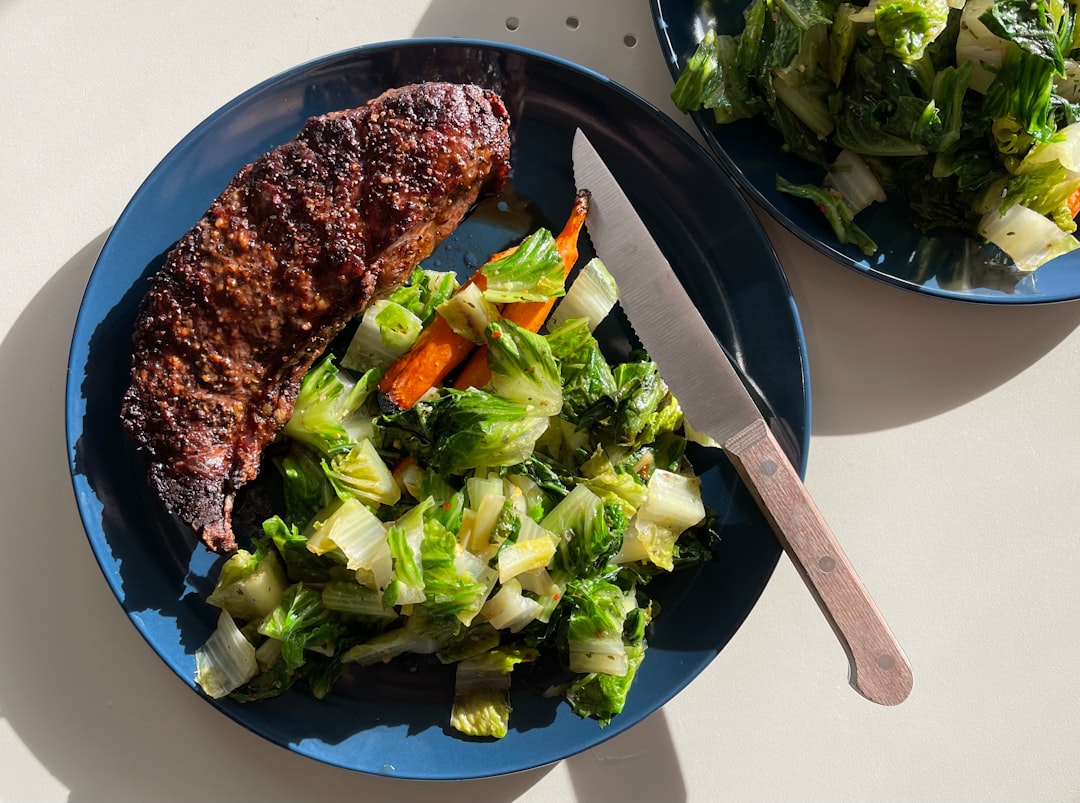How to Meal Prep for the Week: A Complete Beginner’s Guide
Ever feel like you’re constantly scrambling to figure out what to eat? Do you dream of a week where healthy meals are ready and waiting, without the daily stress of cooking? You’re not alone! The good news is, there’s a simple, effective solution: meal prep for the week. And if you’re a complete beginner, you’ve come to the right place.


Meal prepping isn’t just a trend; it’s a lifestyle hack that can revolutionize your relationship with food, save you precious time, and even boost your bank account. But for many, the idea of preparing all your meals for an entire week can feel overwhelming. Where do you even start?
Fear not! This comprehensive guide is designed specifically for you, the beginner. We’ll break down the entire process into easy-to-follow steps, from planning your first menu to storing your delicious creations safely. By the end of this article, you’ll have all the knowledge and confidence you need to successfully meal prep for the week and enjoy the many benefits it brings. Let’s dive in!
Why Meal Prep for the Week? The Benefits You Can’t Ignore
Before we get to the “how,” let’s talk about the “why.” Understanding the incredible advantages of weekly meal prep can be a powerful motivator. Our experience, and that of countless others, shows these benefits are real and transformative.
Save Time
Imagine reclaiming hours each week. Instead of cooking every single day, you dedicate a few focused hours to cooking once or twice. This means less time spent in the kitchen during busy weekdays, more time for hobbies, family, or simply relaxing. It’s truly a game-changer for anyone with a packed schedule.
Save Money
Eating out, ordering takeout, and making impulsive grocery store trips for individual ingredients can quickly drain your wallet. When you plan and prep your meals, you buy exactly what you need, reduce food waste, and avoid those expensive last-minute purchases. It’s a smart financial move.
Eat Healthier
When healthy, delicious food is already prepared, you’re far less likely to reach for unhealthy snacks or fast food options. Meal prepping empowers you to control your ingredients, portion sizes, and nutritional intake, making it easier to stick to dietary goals, whether that’s losing weight, building muscle, or just maintaining a balanced diet. You know exactly what’s in your food.
Reduce Stress & Decision Fatigue
The daily “what’s for dinner?” dilemma can be surprisingly stressful. Meal prepping eliminates this decision fatigue. Your meals are planned, cooked, and ready to go, freeing up mental space for other important things. It brings a sense of calm and organization to your week.
Getting Started: Your Essential Meal Prep Toolkit
You don’t need a gourmet kitchen or fancy gadgets to start meal prepping, but a few key items will make your life much easier. Think of these as your essential companions on your journey to mastering meal prep tools.
Quality Food Storage Containers
This is arguably the most important investment. Look for:
- Airtight seals: To keep food fresh longer and prevent leaks.
- Microwave-safe: For easy reheating.
- Dishwasher-safe: For hassle-free cleanup.
- BPA-free: For health safety.
- Variety of sizes: For different meal components and portion sizes.
- Glass or durable plastic: Glass is great for reheating and doesn’t stain, while plastic is lighter and more portable.
Reliable Kitchen Appliances
You probably already have most of these, but it’s worth a quick check:
- Large pots and pans: For batch cooking.
- Baking sheets: For roasting vegetables or proteins.
- Cutting boards and sharp knives: Efficient chopping is key.
- Measuring cups and spoons: For precise recipes.
- (Optional but helpful) Slow cooker or Instant Pot: Great for hands-off cooking of stews, chilis, or shredded meats.
Basic Cooking Utensils
Spatulas, ladles, tongs, and mixing bowls will all come in handy during your prep session.
Step-by-Step Guide: How to Meal Prep for the Week Like a Pro (Even if You’re Not!)
Now for the main event! This is your complete beginner’s guide to meal prep for the week. We’ve broken it down into six simple steps that anyone can follow.
Step 1: Plan Your Meals Wisely
This is where it all begins. Don’t skip this step! For beginners, simplicity is key. Start by planning 3-4 days of meals, or focus on just one meal type (e.g., lunches). Choose recipes with similar ingredients to save time and money.
- Assess your week: Look at your schedule. When will you eat out? How many meals do you actually need to prep?
- Choose your recipes: Start with recipes you already love and know how to make. Think about meals that reheat well, like stir-fries, chilis, sheet pan dinners, or grain bowls. For easy meal planning strategies, consider theme days (Meatless Monday, Taco Tuesday, etc.).
- Consider components: Instead of full meals, you can prep components. Cook a big batch of rice, roast a tray of veggies, and bake some chicken breasts. Then mix and match throughout the week.
Step 2: Create Your Grocery List
Once your meals are planned, go through each recipe and list every ingredient you need. Don’t forget staples you might already have (oils, spices). Group similar items together (produce, dairy, pantry) to make shopping more efficient.
Step 3: Shop Smart
Armed with your detailed list, hit the grocery store. Stick to your list to avoid impulse buys and stay on budget. Consider buying in bulk for staples like grains or proteins if you have storage space and know you’ll use them.
Step 4: The Cook-Up: Your Meal Prep Session
This is the fun part! Pick a dedicated time, usually a Sunday afternoon, and get cooking. Put on some music, and enjoy the process. Here’s how to maximize your efficiency:
- Pre-chop everything: Wash and chop all your vegetables and fruits first. This saves time during cooking.
- Batch cook grains and proteins: Cook a large batch of rice, quinoa, or pasta. Roast or grill all your chicken, fish, or tofu at once.
- Multi-task: While one dish is roasting in the oven, you can be sautéing vegetables on the stovetop or assembling salads.
- Hard-boil eggs: A quick, easy protein source for breakfasts or snacks.
